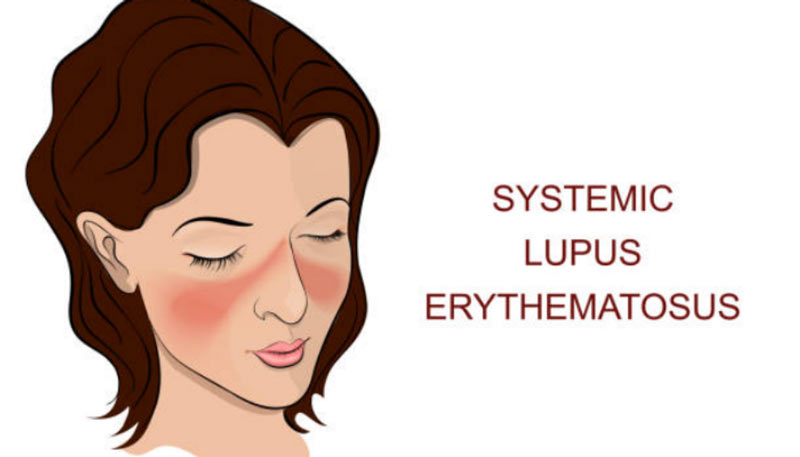Empowering Wellness: Natural Lupus Treatment for Symptoms and Management
Mar 06, 2024 By Nancy Miller
The life with lupus can be hard, but there are resources like natural remedies and management programs that can be helpful for the symptom. Lupus is a systemic disease characterized by different features such as joint aches, fatigue, and skin rashes. Also, the common treatment, medication, is effective for a number of people, but many people go natural or use them as an alternative to medication. This article will provide some natural methods of managing lupus symptoms stress-free.
What does natural lupus mean?
Lupus is a disease of the immune system that is unable to identify tissues or cells of the body and attackers properly. It is attacking healthy tissues instead of germs and viruses because of this. It might sometimes trigger different problems, including weakness, joint pain, and rashes. Understanding lupus naturally is important as it affects millions of people worldwide. This knowledge can result in developments in treatment and support mechanisms for those with lupus.

Cure for Lupus' Symptoms
Lupus causes many complications in life, but there are natural treatment methods that can help reduce its symptoms. Here are some strategies to consider
Exercise and Physical Activity
Lupus patients benefit from working out, which might lead to the body's growth and promotion and good health. Examples of low-impact exercises such as walking, swimming, and yoga are beneficial because they suggest a correct and convenient workout of joints without overload. Not only does exercise help us manage stress levels but it also increases the quality of our sleep, which is very important for lupus management.
Stress Management
Stress can make lupus symptoms worse. Therefore, stress management is very important. One can attempt to reduce stress levels and get some relaxation by deep breathing, meditation, and mindfulness. Breaking away from the daily routine, socializing with family members, and seeing a therapist or attending a support group are other ways of relieving the psychiatric stress pressure.
Diet and Nutrition
A balanced diet, which comprises healthy fruits, vegetables, whole grains, and lean protein foods, can be supportive in maintaining good health and dealing lupus inflammation. This is an effective natural way of treating lupus. Many foods, like fat-containing fish that have high omega-3 fatty acids, aid in inflammation and infections. Skip out processed foods, sugars, and caffeine, yet it will help in sustaining energy levels and preventing flare-ups.
Herbal Supplements
Some herbal remedies have been shown to possess the ability to reduce the symptoms of lupus and, therefore, are helpful for patients. But before these natural remedies are comprised in your therapy, be sure to get approval from your doctor. Turmeric, ginger, and green tea are examples of herbs with anti-inflammatory properties.

Adequate Rest
Rest is of the most significance for lupus patients, and fatigue, one of the most frequent symptoms of the disease that cannot be ignored. Plan at least 7-9 hrs of sleep and stick to the same schedule, which will help to have good sleep quality.
Hydration
The patient with lupus may suffer more if the body water level is not suitable, as it causes fatigue, headache, and joint pain. Drinking water as much as you can because this will aid you stay hydrated and gets rid of the toxins.
What Causes Lupus?
Genetic Factors
Genetic inheritance is an essential process in lupus initiation. People who have family members suffering from lupus or other autoimmune diseases are more at risk of developing that condition themselves. Certain gene mutations may boost your risk for lupus, an autoimmune disease. However, the genetic factors are not enough to trigger lupus, and environmental factors play an important role in determining the outcome.
Environmental factors
Environmental factors can lead to the initiation of lupus in individuals with genetic backgrounds. These triggers could be exposure to UV light from the sun, a pathogen like Epstein-Barr virus, some medicines like antibiotics and blood pressure drugs, hormonal factors like estrogen, and stress.
Hormonal Influences
Hormonal changes can also determine lupus development and progression, particularly in women. Estrogen is well known to be one of the factors that lead to lupus. Though women are more susceptible to systemic lupus than men, the symptoms in women often exacerbate during periods that are related to hormonal variations such as puberty, pregnancy, or menopause, among others. Estrogen can interrupt normal immune system functioning, thereby causing inflammation, which then aggravates the lupus symptoms' severity in severe lupus cases.
Immune System Dysfunction
In lupus disease, an overactive immune system attacks cells and organs within the body, causing them harm or killing them off altogether. This difference is also linked to generating autoantibodies, and these antibodies destroy healthy cells and other tissues in the body. The exact cause of immune system dysfunction cannot be established but is thought to involve multiple factors like genetic exposure, environmental conditions, and endocrine influences.
Inflammation Rate
Lupus has chronic inflammation as one of its well-known features, and factors that withstand this type of inflammatory reaction could initiate and progress the disease. Obesity is responsible for low-level body-wide inflammation that could be involved in triggering lupus symptoms with autoimmune responses. Chronic infections such as gum diseases or sustained viral infections also lead to inflammation, which may worsen lupus.
Control Hormonal Birth
However, a few studies suggest that hormonal medicine may result in immune dysregulation and inflammation that causes symptoms of lupus.
Therefore, women having a relative history of systemic lupus erythematosus (SLE) or other autoimmune disorders might be advised not to use hormonal medicine.

Conclusion
Natural remedies for systemic lupus can help people improve their health by reducing various indications of its manifestation. Changing lifestyle behaviors, including eating lots of nutritious foods like fruits, vegetables, and omega-3 fatty acids, can improve general well-being and reduce inflammation.







